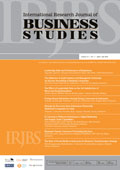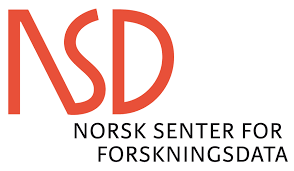Article Metrics |
|
|
Leadership Style and Performance of Employees
Abstract
Leadership is an important aspect as it usually enables the employee of the organizations to work efficiently and effectively. The current study assesses the relationship between leadership style(s) and the performance of employees working in the banking sector of the United Arab Emirates (UAE). This quantitative study is conducted with a sample of 200 employees from 5 different banking institutions of the UAE using simple random sampling techniques. SPSS version 21 was used to analyze the data. The results highlighted that democratic and transformational leadership have a significant positive relationship with the performance of employees with a p-value of 0.00, P<0.05. The Cronbach’s alpha was measured between the ranges of 0.7 to 0.8 which is an acceptable range. It is proven that democratic leadership and transformational leadership styles are significant for the banking sector which helps to achieve its goals and enhance the performance of employees.
Keywords:
Leadership, Democratic leadership, Transformational leadership, Performance of employees, Positive Relationship
* European International College, Al Karamah Street, Abu Dhabi, United Arab Emirates
Full Text:
References
Agarwal, S. & Al-Qouyatahi, K.M.S. (2017). HRM challenges in the age of globalization. International Research Journal of Business Studies, Vol.10, No.2, pp.89-98.
Almatrooshi, B., Singh, S. K., & Farouk, S. (2016). Determinants of organizational performance: a proposed framework. International Journal of Productivity and Performance Management, 65(6), 844-859.
Amanchukwu, R. N., Stanley, G. J., & Ololube, N. P. (2015). A review of leadership theories, principles and styles and their relevance to educational management. Management, 5(1), 6-14.
Anderson, M. H., & Sun, P. Y. (2017). Reviewing leadership styles: Overlaps and the need for a new ‘full‐range’ theory. International Journal of Management Reviews, 19(1), 76-96.
Arnold, K. A., Connelly, C. E., Walsh, M. M., & Martin Ginis, K. A. (2015). Leadership styles, emotion regulation, and burnout. Journal of Occupational Health Psychology, 20(4), 481.
Asrar-ul-Haq, M., & Kuchinke, K. P. (2016). Impact of leadership styles on employees’ attitude towards their leader and performance: Empirical evidence from Pakistani banks. Future Business Journal, 2(1), 54-64.
Birasnav, M. (2014). Knowledge management and organizational performance in the service industry: The role of transformational leadership beyond the effects of transactional leadership. Journal of Business Research, 67(8), 1622-1629.
Blumberg, B., Cooper, D., & Schildler, P. (eds. 4), (2014), Business Research Methods, McGraw Hill education.
Bowling, A. (2014). Research methods in health: investigating health and health services. McGraw-hill education (UK).
Cooper, D. (2015). Effective safety leadership: Understanding types & styles that improve safety performance. Professional Safety, 60(02), 49-53.
Duncan, S., & Fiske, D. W. (2015). Face-to-face interaction: Research, methods, and theory. Routledge.
F. Vito, G., E. Higgins, G., & S. Denney, A. (2014). Transactional and transformational leadership: An examination of the leadership challenge model. Policing: An International Journal of Police Strategies & Management, 37(4), 809-822.
Frankel, A., & PGCMS, R. (2019). What leadership styles should senior nurses develop?. Mental health, 12, 50.
Fu, W., & Deshpande, S. P. (2014). The impact of caring climate, job satisfaction, and organizational commitment on job performance of employees in a China’s insurance company. Journal of Business Ethics, 124(2), 339-349.
Harwiki, W. (2016). The impact of servant leadership on organization culture, organizational commitment, organizational citizenship behaviour (OCB) and employee performance in women cooperatives. Procedia-Social and Behavioral Sciences, 219, 283-290.
Hurduzeu, R. E. (2015). The impact of leadership on organizational performance. SEA–Practical Application of Science, 3(07), 289-293.
Jackson, S. L. (2015). Research methods and statistics: A critical thinking approach. Cengage Learning.
Koohang, A., Paliszkiewicz, J., & Goluchowski, J. (2017). The impact of leadership on trust, knowledge management, and organizational performance: A research model. Industrial Management & Data Systems, 117(3), 521-537.
Masa'deh, R. E., Obeidat, B. Y., & Tarhini, A. (2016). A Jordanian empirical study of the associations among transformational leadership, transactional leadership, knowledge sharing, job performance, and firm performance: A structural equation modelling approach. Journal of Management Development, 35(5), 681-705.
Mussolino, D., & Calabrò, A. (2014). Paternalistic leadership in family firms: Types and implications for intergenerational succession. Journal of Family Business Strategy, 5(2), 197-210.
Nanjundeswaraswamy, T. S., & Swamy, D. R. (2014). Leadership styles. Advances in management, 7(2), 57.
Neubert, M. J., Hunter, E. M., & Tolentino, R. C. (2016). A servant leader and their stakeholders: When does organizational structure enhance a leader's influence?. The Leadership Quarterly, 27(6), 896-910.
Smith, J. A. (Ed.). (2015). Qualitative psychology: A practical guide to research methods. Sage.
Tavakol, M. & Dennick, R. (2011), ‘Making sense of Cronbach’s alpha’, International Journal of Medical Education, Vol. 2, pp.53-55.
Taylor, S. J., Bogdan, R., & DeVault, M. (2015). Introduction to qualitative research methods: A guidebook and resource. John Wiley & Sons.
Urick, A., & Bowers, A. J. (2014). What are the different types of principals across the United States? A latent class analysis of principal perception of leadership. Educational Administration Quarterly, 50(1), 96-134.
Wang, D., Waldman, D. A., & Zhang, Z. (2014). A meta-analysis of shared leadership and team effectiveness. Journal of applied psychology, 99(2), 181.
Wang, H., Sui, Y., Luthans, F., Wang, D., & Wu, Y. (2014). Impact of authentic leadership on performance: Role of followers' positive psychological capital and relational processes. Journal of Organizational Behavior, 35(1), 5-21.
Yahaya, R., & Ebrahim, F. (2016). Leadership styles and organizational commitment: literature review. Journal of Management Development, 35(2), 190-216.
Zimmermann, A., Hill, S., Birkinshaw, J., & Jäckel, M. (2017). How to Become Ambidextrous?: The Interaction of Structure, Leadership, and Organizational Context.
Copyright (c) 2020 INTERNATIONAL RESEARCH JOURNAL OF BUSINESS STUDIES
International Research Journal of Business Studies has been covered by the following services: | ||||||||||||||||||||||||
|




















